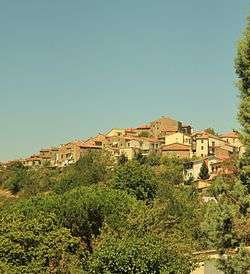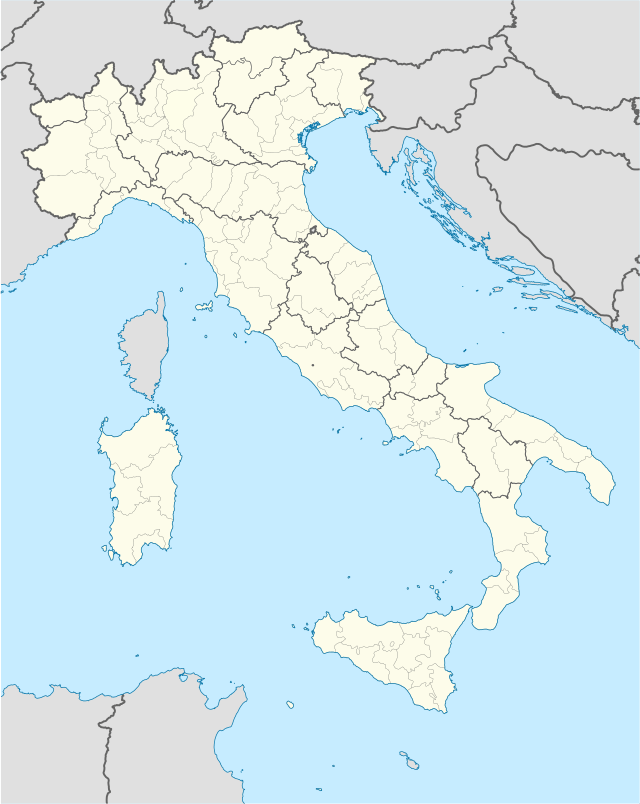Boccheggiano
Boccheggiano is a village in Tuscany, central Italy, administratively a frazione of the comune of Montieri, province of Grosseto, in the area of Colline Metallifere. At the time of the 2001 census its population amounted to 339.[1]
Boccheggiano | |
|---|---|
 View of Boccheggiano | |
 Boccheggiano Location of Boccheggiano in Italy | |
| Coordinates: 43°5′25″N 11°2′1″E | |
| Country | |
| Region | |
| Province | Grosseto (GR) |
| Comune | Montieri |
| Elevation | 664 m (2,178 ft) |
| Population (2011) | |
| • Total | 311 |
| Demonym(s) | Boccheggianesi |
| Time zone | UTC+1 (CET) |
| • Summer (DST) | UTC+2 (CEST) |
| Postal code | 58026 |
| Dialing code | (+39) 0564 |
Boccheggiano is about 48 km from Grosseto and 8 km from Montieri, and it is situated along the Provincial Road which links Massa Marittima with Monticiano. It was an important mining village.
Main sights

Porta della Torricella
- San Bartolomeo (15th century), main parish church of the village, it was restructured many times (in 1864, 1986, 1990).
- San Sebastiano (14th century), it was restructured in the 17th century.
- Walls of Boccheggiano, old fortifications which surround the village since the 13th century.
- Porta della Torricella, main gate and access to the medieval village.
- Porta di Villa, destroyed.
- Municipal Theatre of Boccheggiano, it was built in 1927.
- Giardino dei Suoni (Garden of Sounds), a park of contemporary art founded by artist Paul Fuchs.
gollark: Easy HTML quine:``````
gollark: HTML... quines...
gollark: Also, horrific, obviously.
gollark: More ugly than Rust!
gollark: 🇦 🇺 🇹 🇴 🇲 🇦 🇹 🇮 🇴 🇳
References
- (in Italian) Popolazione residente - Grosseto (dettaglio loc. abitate) - Censimento 2001, Istat
Bibliography
- Aldo Mazzolai, Guida della Maremma. Percorsi tra arte e natura, Le Lettere, Florence, 1997.
This article is issued from Wikipedia. The text is licensed under Creative Commons - Attribution - Sharealike. Additional terms may apply for the media files.